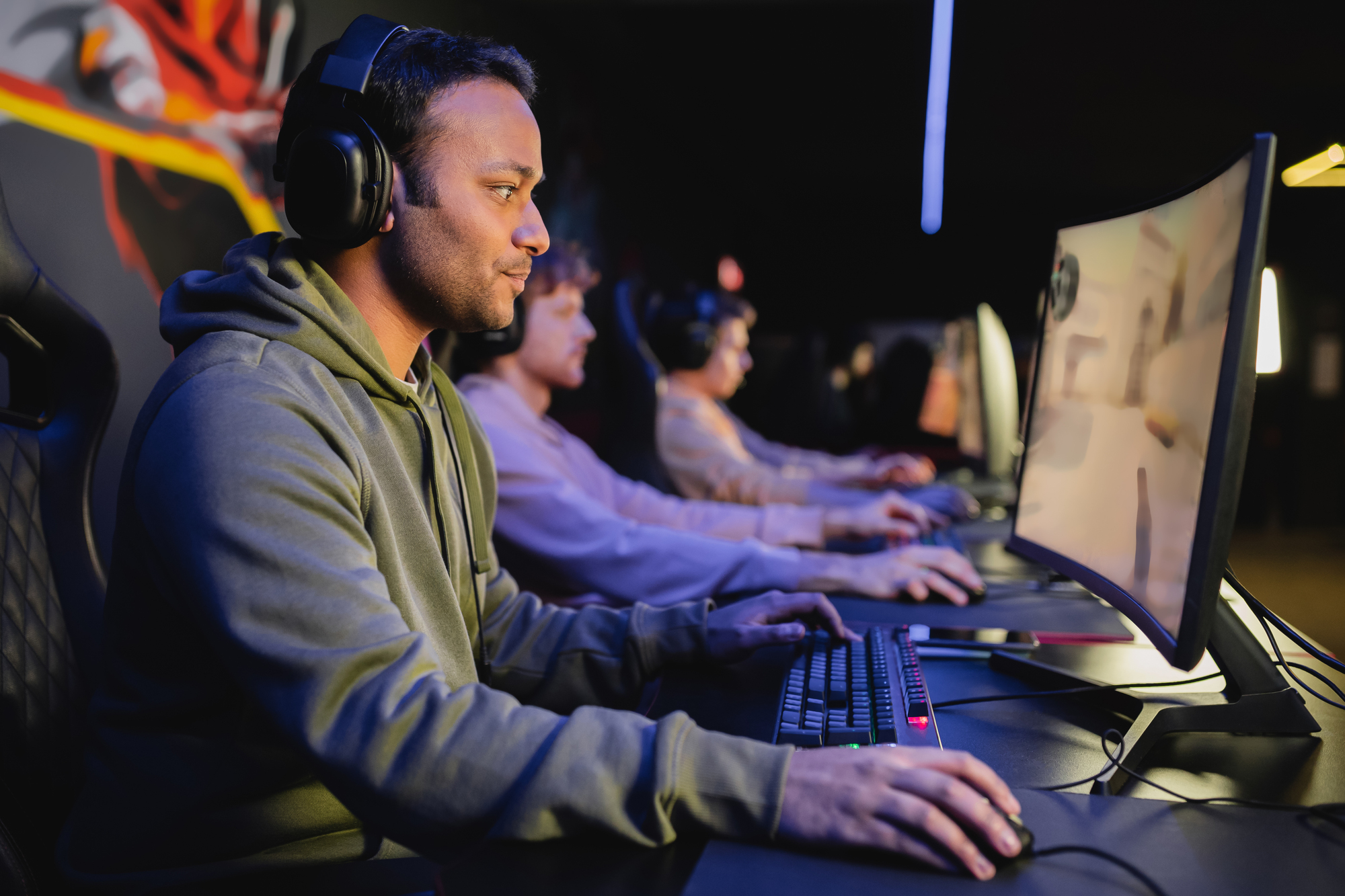Video games have emerged as powerful tools for raising political awareness among young people. They offer immersive experiences that engage players with complex social and political issues in ways traditional media often cannot. Many game developers now create titles specifically designed to increase public awareness of pressing global challenges like poverty, gender inequality, and refugee crises.
This trend represents a significant shift in how political messages are conveyed to younger generations. By incorporating real-world issues into gameplay, video games can foster empathy and understanding for different perspectives. Players are given the chance to explore difficult topics in a safe, interactive environment.
The impact of these politically-conscious games extends beyond individual players. As games with social messages gain popularity, they spark conversations and debates both online and offline. This ripple effect helps bring important issues to the forefront of public discourse, potentially influencing broader social and political attitudes.
The Evolution of Video Games as Political Tools
Video games have transformed from pure entertainment to powerful platforms for political engagement and awareness. This shift has opened new avenues for civic participation and discourse.
The Birth of Serious Games and Their Objectives
Serious games emerged in the early 2000s as educational tools with political aims. These games sought to inform players about complex issues and encourage critical thinking. “PeaceMaker” (2007) simulated the Israeli-Palestinian conflict, challenging players to negotiate peace.
Games like “Food Force” (2005) focused on global hunger, while “Darfur is Dying” (2006) highlighted the Sudanese humanitarian crisis. These titles aimed to raise awareness and inspire action on pressing world issues.
Serious games often incorporated real-world data and scenarios to create authentic experiences. This approach helped players grasp the intricacies of political decision-making and international relations.
Incorporating Political Issues into Mainstream Gaming
As gaming grew more popular, mainstream titles began integrating political themes. “BioShock” (2007) explored objectivism and dystopian politics, while “Deus Ex: Human Revolution” (2011) tackled transhumanism and corporate power.
Open-world games like “Grand Theft Auto” series included satirical commentary on American politics and culture. These games reached wider audiences, sparking discussions on social media and gaming forums.
Some developers used their platforms to address current events. “Papers, Please” (2013) examined immigration and authoritarianism, resonating with players during heated political debates.
Role of Storytelling and Characterisation in Engaging Players
Strong narratives and well-developed characters became key in conveying political messages through games. “This War of Mine” (2014) put players in the shoes of civilians during wartime, fostering empathy for real-world conflict victims.
Character-driven stories in games like “Life is Strange” (2015) explored social issues such as bullying and LGBTQ+ rights. These personal narratives helped players connect emotionally with political themes.
Games began offering choices that affected storylines and outcomes. “Detroit: Become Human” (2018) allowed players to shape a future society’s stance on artificial intelligence and civil rights, encouraging reflection on current political debates.
Mechanisms Influencing Political Awareness
Video games employ several psychological and social mechanisms to shape political awareness. These mechanisms leverage the interactive nature of games to engage players and influence their attitudes.
Empathy and Perspective-Taking through Immersive Gaming Experiences
Video games create virtual environments that allow players to step into different roles and situations. This immersion fosters empathy by enabling players to experience diverse perspectives firsthand. Games like “Papers, Please” put players in the position of a border control officer, forcing them to grapple with moral dilemmas related to immigration policies.
By simulating real-world scenarios, games can help players understand complex political issues from multiple angles. This increased empathy and perspective-taking can lead to more nuanced views on political topics.
Transportation Theory and Attitude Transformation
Transportation theory explains how narrative engagement can influence beliefs and attitudes. Video games with strong storytelling elements can transport players into the game world, making them more receptive to new ideas.
Games like “This War of Mine” immerse players in the experiences of civilians during wartime. As players become emotionally invested in the characters’ struggles, they may reassess their views on war and its impact on society.
This narrative transportation can be a powerful tool for changing attitudes on political issues by presenting them in a context that resonates with players on an emotional level.
Addressing Prejudice with Integrated Threat Theory
Integrated threat theory suggests that prejudice stems from perceived threats to one’s in-group. Video games can address these perceived threats by allowing players to interact with out-group members in non-threatening virtual environments.
Games like “Deus Ex: Mankind Divided” explore themes of discrimination and social inequality. By placing players in the shoes of marginalized characters, these games can reduce perceived threats and challenge existing prejudices.
Through controlled exposure to diverse perspectives and experiences, video games can help players confront and overcome biases that influence their political views.
Engagement and Activism through Gaming
Video games have evolved into powerful platforms for political awareness and social change. They provide unique opportunities for players to engage with global issues, participate in civic activities, and support causes through gaming communities.
Platforms for Global Social Issues Awareness
Game developers are creating titles that address pressing social problems. These games tackle topics like poverty, cancer, child abuse, gender dysphoria, and refugee crises. By immersing players in virtual representations of real-world challenges, games foster empathy and understanding.
Some titles simulate experiences of marginalized groups, allowing players to gain new perspectives. Others incorporate fundraising mechanisms, enabling gamers to contribute to related charities while playing. Educational games teach players about complex global issues in interactive ways.
Civic Engagement and Volunteer Opportunities in Gaming
Games now offer paths for civic participation and volunteerism. Some titles include features that connect players with local volunteer opportunities based on in-game actions. Others simulate political processes, teaching players about voting, policy-making, and governance.
Virtual town halls and forums within games provide spaces for political discourse. Players can engage in debates, propose solutions to community problems, and even participate in mock elections. These experiences can translate into real-world civic engagement.
Gamified apps encourage users to complete civic tasks, such as attending local government meetings or participating in community service projects. Players earn rewards and track their impact, making civic involvement more appealing and accessible.
Esports and Streamers as Proponents of Social Change
The esports industry and gaming influencers have become significant voices for social causes. Professional gamers and popular streamers use their platforms to raise awareness about political issues and encourage civic participation among their followers.
Charity streaming events have raised millions for various causes. Gamers livestream extended play sessions, accepting donations from viewers for specific charities or social initiatives. These events often feature educational segments about the supported causes.
Esports organizations partner with non-profits and advocacy groups to promote social change. They organize tournaments with themes tied to specific issues, using competition to draw attention to important topics. Some teams dedicate a portion of their winnings to charitable causes.
Case Studies of Political Awareness in Gaming
Video games have emerged as powerful tools for raising political awareness and encouraging civic engagement. Several games demonstrate this potential through creative approaches to addressing real-world issues.
Minecraft’s Educational Spin-offs on Environmental Communication
Minecraft: Education Edition has incorporated environmental themes to teach students about sustainability. The game features lessons on climate change, renewable energy, and ecosystem management. Players build sustainable cities, manage resources, and solve environmental challenges.
In one scenario, students create coral reefs and learn about ocean acidification. Another module focuses on sustainable farming practices. These interactive experiences help players grasp complex environmental concepts in a hands-on way.
Minecraft’s wide reach makes it an effective platform for environmental communication. Its accessibility and popularity among young people allow important messages to spread organically through gameplay.
‘To the Last Tree Standing’ – Gaming and Environmental Advocacy
Greenpeace collaborated with game developers to create ‘To the Last Tree Standing’, a Minecraft map highlighting deforestation in Poland’s Białowieża Forest. The game recreates the endangered forest within Minecraft’s blocky world.
Players explore the virtual Białowieża Forest, encountering its unique ecosystems and wildlife. As they progress, they witness the forest’s gradual destruction due to logging. This visual representation aims to spark concern and motivate action.
The game links to real-world petitions and information about forest conservation. By blending gameplay with advocacy, ‘To the Last Tree Standing’ turns Minecraft into a platform for environmental activism.
The Influence of Sandbox Games on Political Movements
Sandbox games like SimCity and Cities: Skylines have influenced how people think about urban planning and governance. These games task players with managing complex city systems, from infrastructure to social services.
Players grapple with budget constraints, environmental concerns, and citizens’ needs. This gameplay mirrors real-world political challenges, fostering an understanding of policy trade-offs.
Some educators use these games to teach civics and public administration. Students learn about zoning laws, tax policies, and public transportation through hands-on simulation. This gaming experience can spark interest in local politics and urban development.












